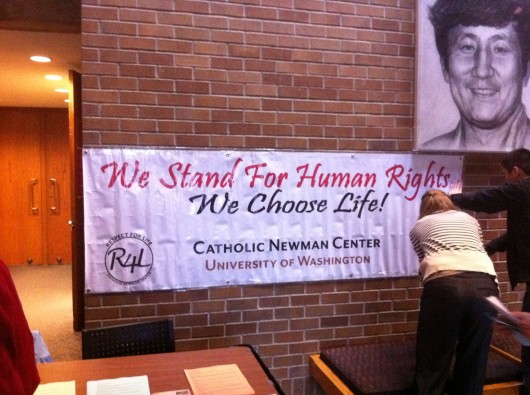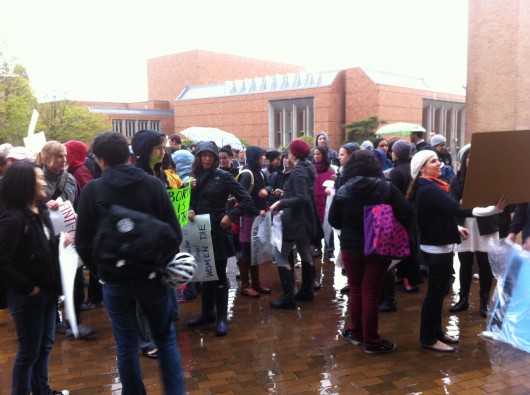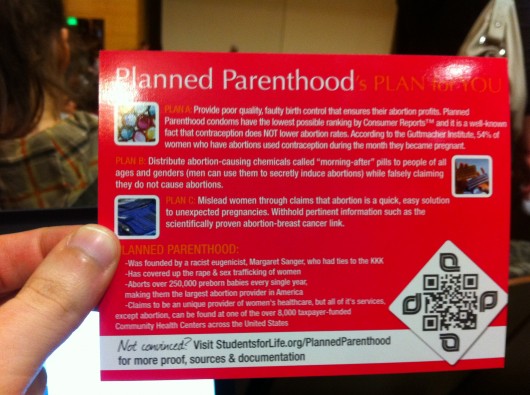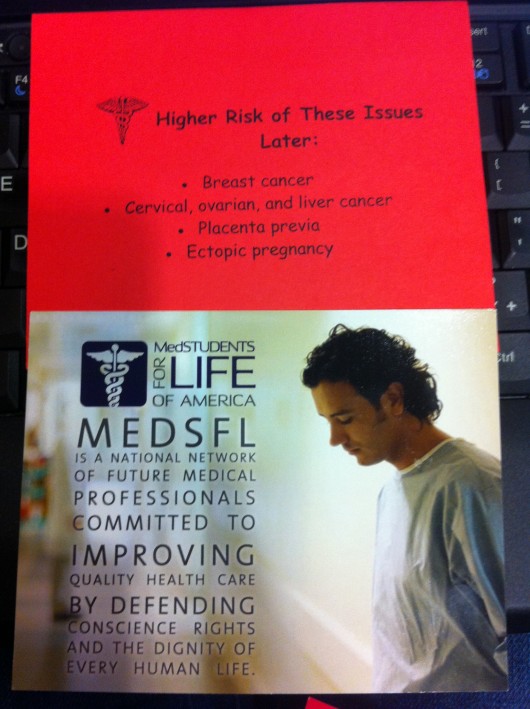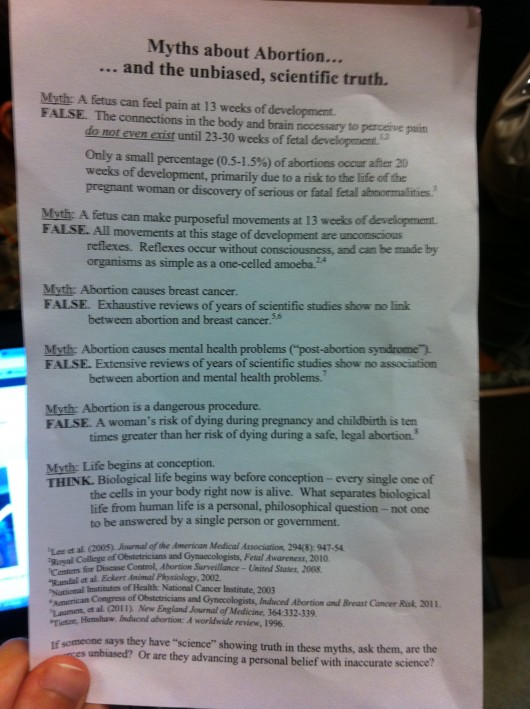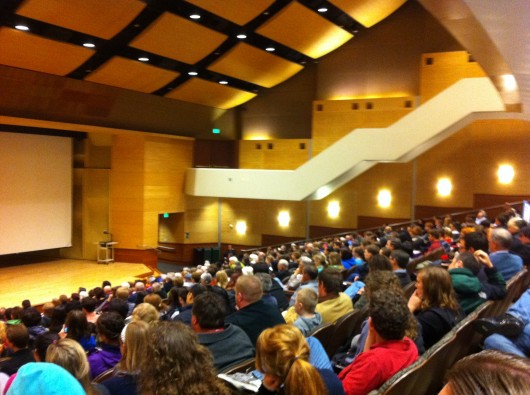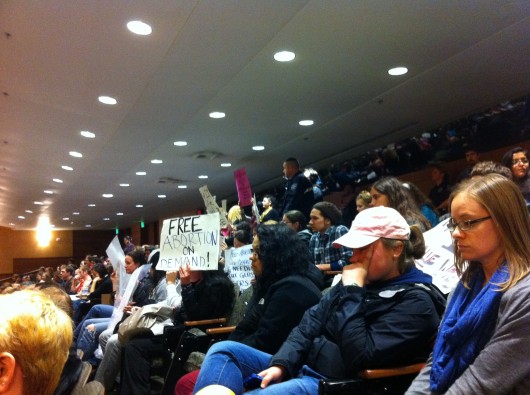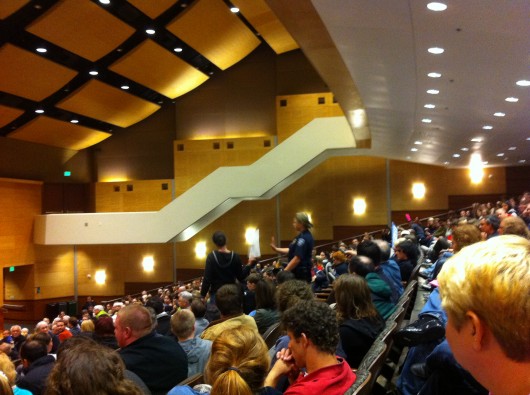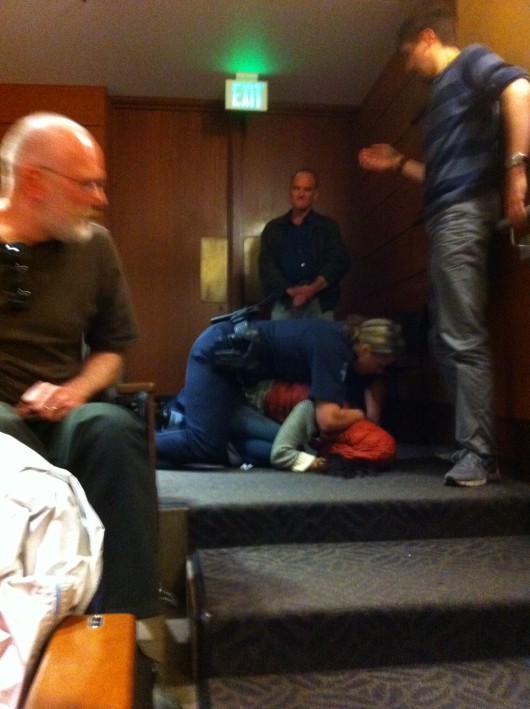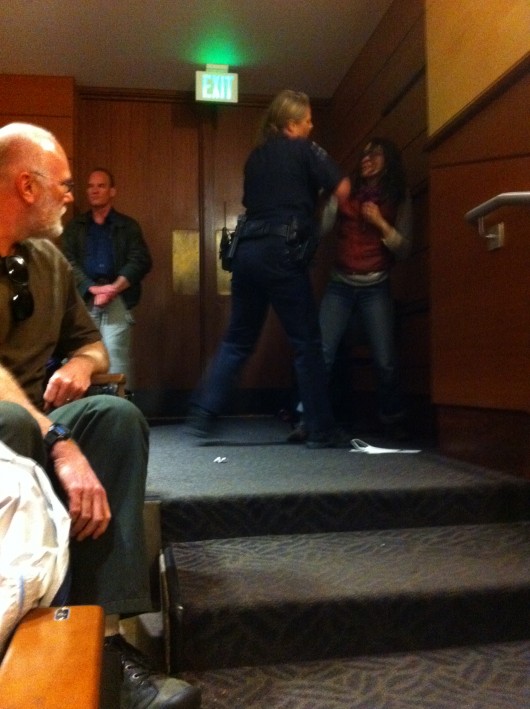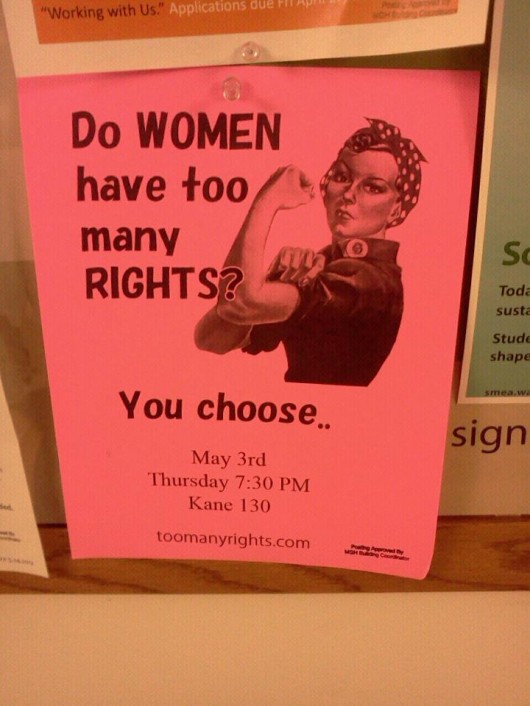At last weekend’s Women in Secularism conference, I accidentally set off a lot of discussion with something I said during a panel. I say “accidentally” because I wasn’t planning on talking about this specific point, nor did I think it would result in such a reaction. I remarked that when I was about to attend my first major atheist/skeptical conference, multiple people independently sent me unsolicited advice about what male speakers to avoid at the con. The same speakers were mentioned by different individuals, with warnings that they often make unwanted and aggressive sexual advances toward young pretty women and that I should not be alone with them.
It certainly made my first big con a little more stressful. But it became more stressful when I realized this was far more pervasive than I thought. As I started getting more involved in these communities, more and more stories came out of the woodwork. Both female friends and strangers confided in me, telling me stories of speakers that talked only to their chest, groped them against their wishes, followed them to their hotel room, or had goals to bag a young hottie at every speaking gig they did. Once after I had publicly criticized someone on my blog, people made sure to warn me that this person had a skeevy record. I had to request friends attending the con to be extra diligent about making sure I wasn’t alone.
The same names kept popping up over time. None are particularly shocking, honestly. They’re all people who have been criticized for public sexist comments that they’ve made. Which does not mean everyone who’s made a sexist comment is also making inappropriate advances – it’s a subset. But women in the movement had formed an unofficial underground network of knowledge, making sure to warn people about who to avoid.
There are obviously problems with this. A commenter at Almost Diamonds summarized it well:
You will, of course, do whatever you want, but I find it very upsetting to be told that, “You should come to our conferences! Of course, some of the people who really have a chunk of power at the conferences (the speakers) are known to treat women badly, and thus might treat you badly. But I won’t tell you who they are, so you’ll just have to hope you don’t encounter them or, if you do encounter them, that they won’t treat you badly. But do come!”
I’ve been to one secular/atheist/freethinker conference, and I was treated badly by a man (not a speaker). As awful as it was, the one of the things that made it bearable was the thought that no one knew this was going to happen and that if they had, they would have acted to support me. To think that I might go through a similar experience with a speaker while knowing that other people knew what was going to happen but felt no need to warn me makes me very angry, and it makes me feel like I’m not safe to go to conferences.
It’s all well and good to advise “networking behind the scenes,” but I don’t have a fucking network, and that’s part of the reason I feel like going to conferences might be good for me. But if I have to network behind the scenes to be safe at conferences, then I have to already have what I’m looking for to be safe.
Maybe I’m being selfish about this. Maybe I’m too angry. But I’ve been abused enough in my life. I am not about to set myself up to be abused again, and it makes my eyes tear up and my throat constrict to think that going to these conferences means going to interact with people who everyone else may know is abusive but won’t warn me because I don’t have connections.
This commenter has every right to be angry. I’m angry at myself for being part of the problem – for being someone with this knowledge who has no clue what to do with it.
“Why don’t you just publish a list of names?” you ask. If only it were that easy. Imagine what would happen if I published a list of names based on hearsay alone. I don’t have video evidence. I don’t even have personal experience – people now know I’m a loud mouth blogger, which makes me a terrible target. Even though I trust my friends to be truthful, and patterns of bad behavior make the hearsay convincing, it’s an easy target for skeptics. There’d be a flood of accusations that people are lying or oversensitive.
Not only that, but I fear the consequences. Look at what happened to Rebecca Watson when she simply said “guys, don’t do that” about an anonymous conference attendee. Imagine the shitstorm if there were public accusations of sexual misconduct of some very famous speakers. I’m not ready for the flood of rape and death threats. I’m not ready to be blacklisted and have my atheist “career” ruined by people more powerful and influential than me. I’m not ready to be sued for libel or slander. I’m not ready for the SSA or other organizations I’m affiliated with to also be harmed by association. And that’s exactly how all of these other women feel – hence the silence (See Stephanie Zvan’s lovely FAQ for this situation).
It’s a terrible Catch 22.
And I frankly don’t know how to navigate this minefield. I’m a scientist by day, with atheism and feminism as my hobbies. I’m not an HR specialist. I’m out of my element.
But because of my random comment, progress is already being made. For one, I didn’t realize so many people were oblivious to these problems. I thought because I was so quickly brought into The Know, this had to be something everyone in the movement was aware of. But it wasn’t. After I made my comment, dozens of people kept asking me for the names on The List (which I didn’t give – see my previous points). I was independently approached by multiple big names at the conference who wanted to help and learn what they could do to make their conferences safer.
Stephanie Zvan has given an excellent suggestion: Our conferences need to start adopting anti-harassment policies with guidelines of how to handle harassment that are clearly known to everyone, including speakers. It’s not a cure-all, but as Stephanie says:
“The problem with speakers didn’t develop overnight, and given the difficulties in dealing with them, they’re not going to disappear overnight. However, not only does having formal policies in place help protect your guests while this is being sorted out, but they provide a means of collecting and tracking this misbehavior. It’s much simpler to push back against pressure to include a speaker with formal tracking. It’s much simpler to share information with, “We had X number of violations of policy reported to us, and we have the records to back that up,” rather than, “So-and-so did such-and-such according to some person I can’t name.””
And her blog post is already having results. Groups are pledging to adopt this policy, including American Atheists and the Secular Student Alliance (which had an anti-harassment policy last year but will make it more prominent). I encourage you to ask other major atheist and secular organizations to adopt similar policies with a link to Stephanie’s post. Because an easy first step is to put pressure on organizations to address this problem. EDIT: Freethought Festival and the Minnesota Atheist Convention have also pledged to adopt a policy.
Obviously more needs to be done. An idea that has been floated is to create a list of speakers who will not attend events unless there’s a strict anti-harassment policy with them. I would happily sign up for this list, and maybe if enough big names did as well, it would put pressure on organizations to accept.
An idea is to make conference organizers and speakers agree to not partake in sexual activity with attendees at their events. The SSA already has this policy, which I’ve received as a member of their Speakers Bureau. If you’re a conference organizer or a speaker, you are in a position of power. If you are making advances toward someone, you are abusing that position of power. Full stop. Speakers and conference organizers should not be looking to get laid at conferences because they are there in a professional setting, even if attendees are there for more entertainment reasons. Even if things seem consensual, that power differential makes things inherently unbalanced. Women are already socialized to not directly say no – it’s even more difficult to do so when power differentials are involved.
And I say this as a sex positive person. There’s a time and a place for flirtation and mating rituals, and when you’re a speaker, a con is neither the time nor place. I understand if attendees want to flirt and hook up with each other, since the event is not necessarily a professional setting for them (but please do your flirting during at the pub and not in the middle of a lecture, and please take no for an answer). But in my opinion, this just shouldn’t acceptable for speakers.
Again, this isn’t my area of expertise. What do you think we can do to deal with badly behaving big names? Is the anti-harassment policy enough? Do you like the idea of a list of speakers who want anti-harassment policies in place? What can we do to solve this problem?


